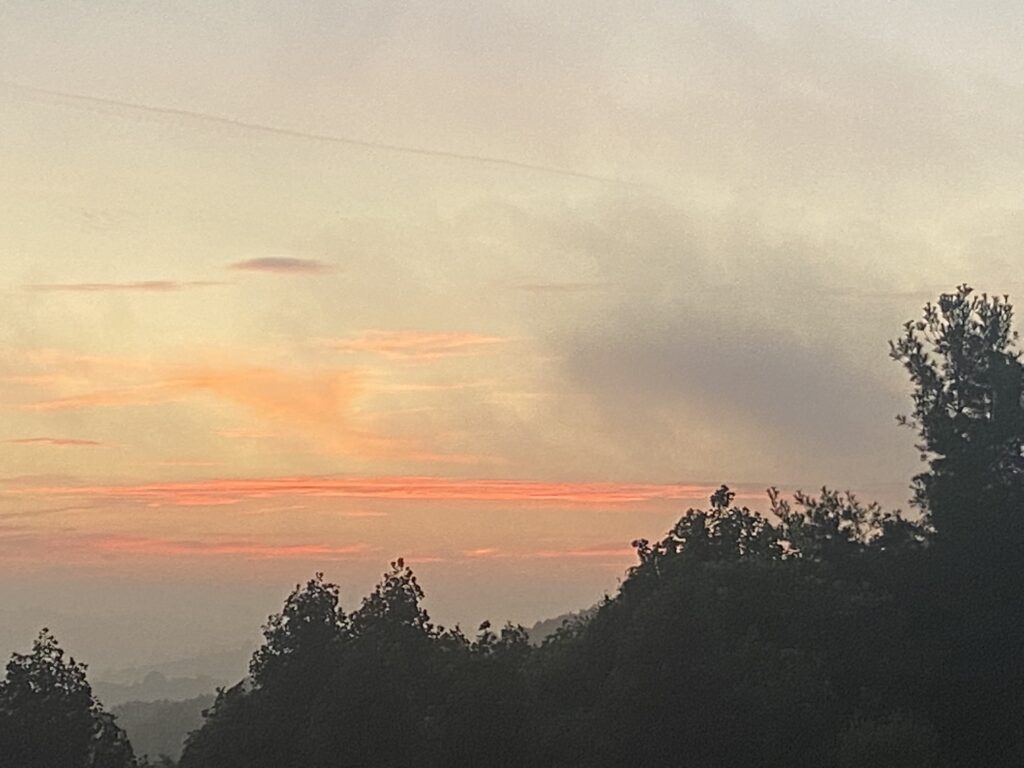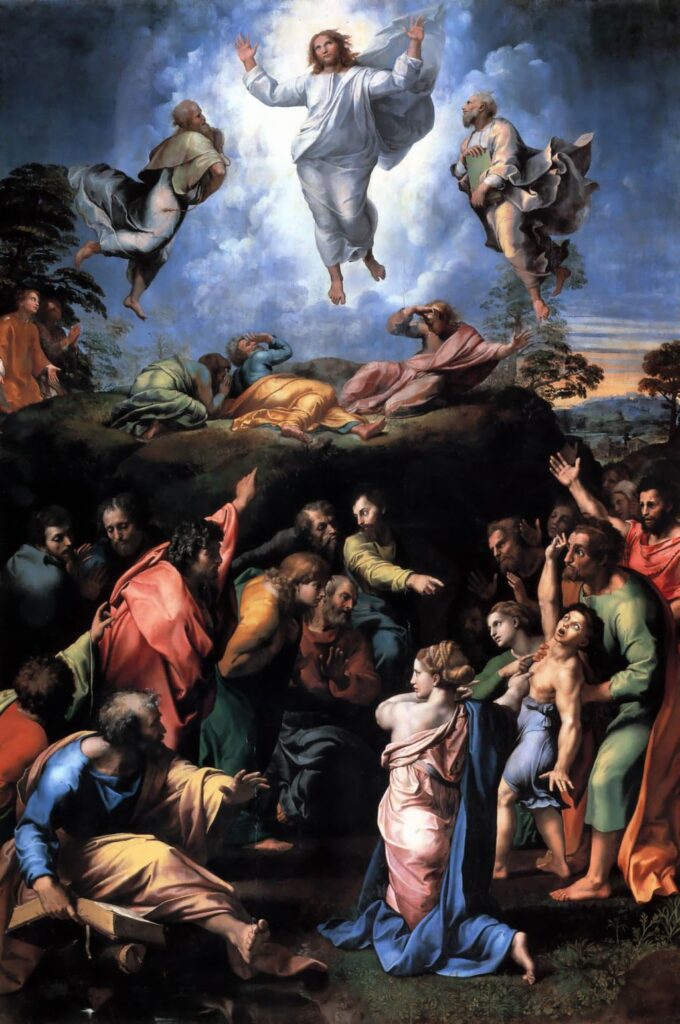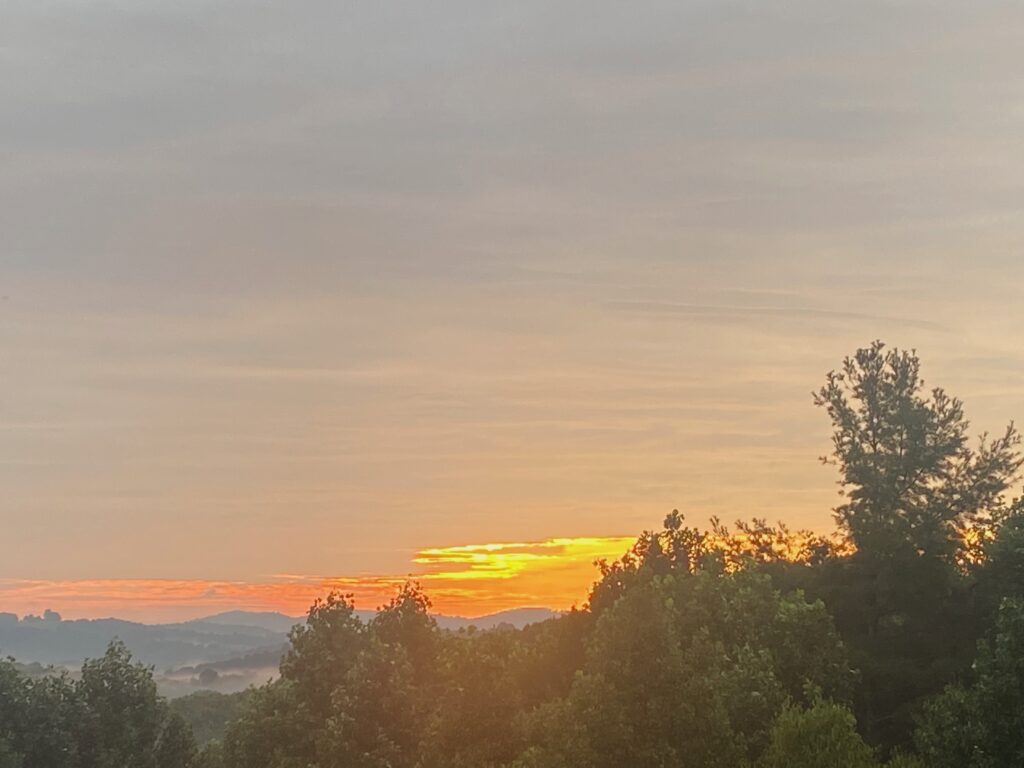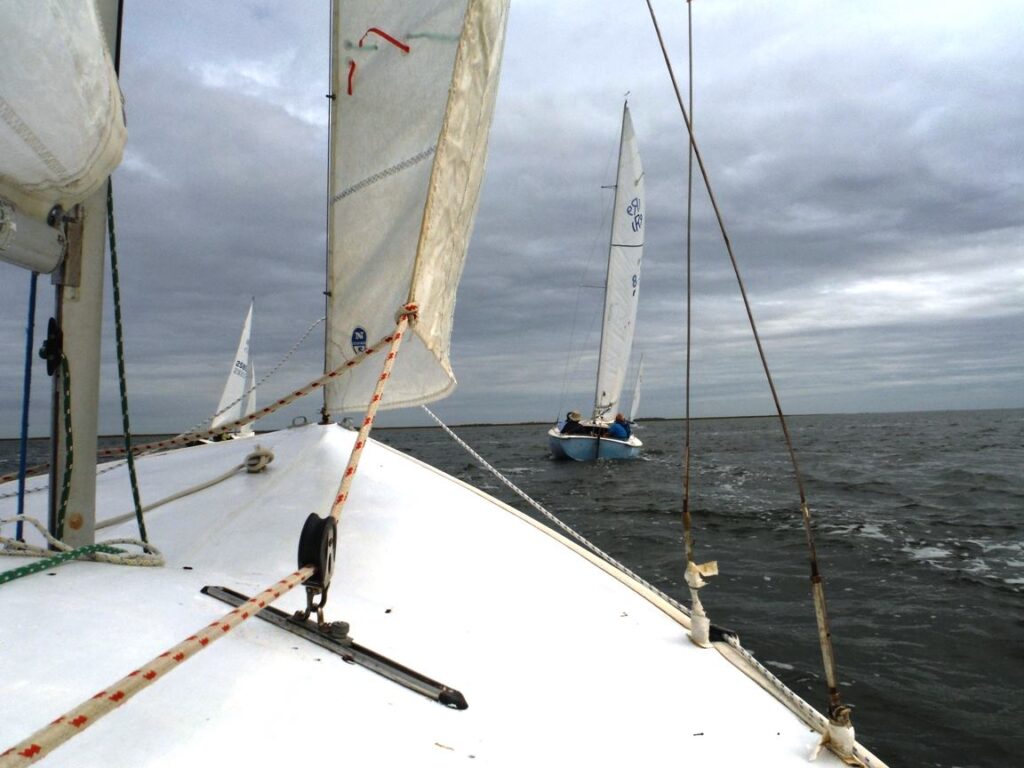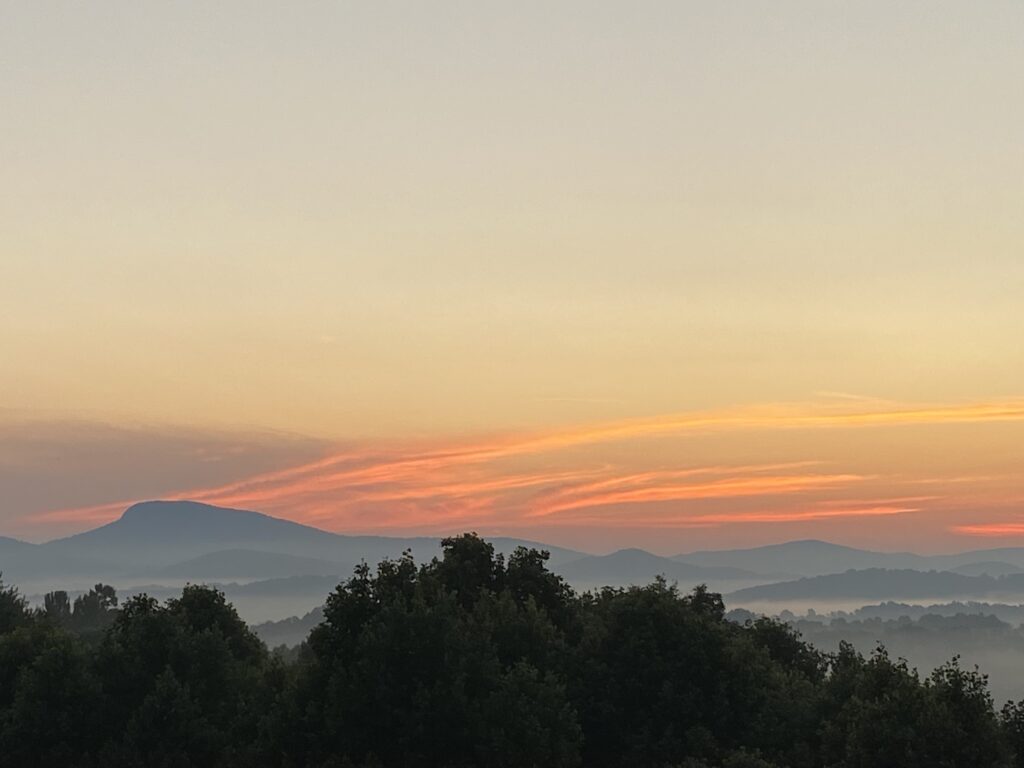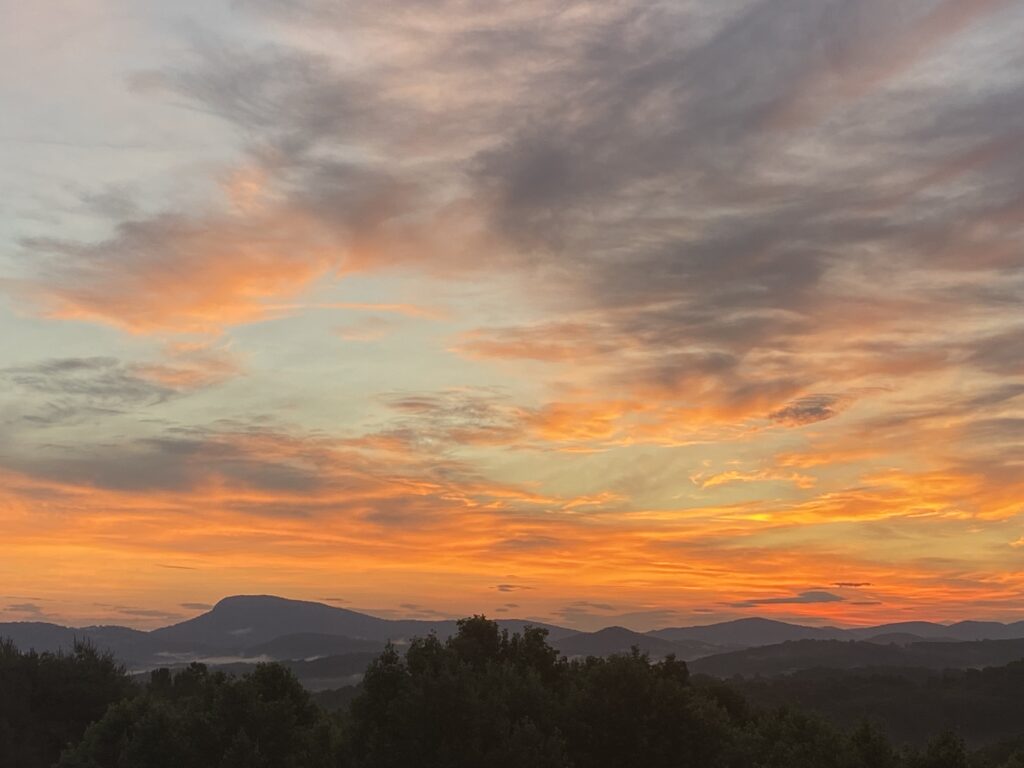Jeff Garrison
Mayberry and Bluemont Churches
September 4, 2022
Luke 9:46-50
At the beginning of worship:
Supposedly, the great 19th Century “Prince of Preachers, Charles Spurgeon, was met at the doors of London’s Metropolitan Tabernacle one Sunday by an older woman. Greeting the preacher, she bragged that she had been very careful all week and hadn’t sinned at all. Taking this in, Spurgeon responded, “Well Madam, that must make you very proud.” “Yes, it does,” she responded, not realizing she’d stepped into a trap.
Our salvation isn’t based upon what we do, but upon the mercy and grace of God as shown through Jesus Christ. While we are to avoid sin, our hope is not in avoiding it, but from trusting in God. When we think too highly about ourselves (or any groups to which we belong), we skate on thin ice. We risk becoming arrogant, and we trust ourselves instead of depending upon God’s grace.
Problems with pride
“Pride goes before destruction, and a haughty spirit before a fall,” according to the book of Proverbs.[1] As followers of Jesus, we are called to be humble. Paul instructs the Corinthians, “if we boast, it should only be in the Lord.”[2]
Today, we’re going to consider two requirements of discipleship. Jesus expects us to be humble and willing to cooperate. These Christ-like values counter our pride, our yearning to be the best, and our willingness to exclude others.
Before reading the scripture passage:
This is my sixth sermon on the 9th Chapter of Luke’s gospel. This section of the gospel focuses on discipleship as we see the disciples taking over the hands-on work from Jesus. We’re learned that discipleship is about building relationships, trusting God to multiple our efforts, professing Jesus as the Messiah, listening to Jesus, and trusting that God knows best. Today, we’re going to see that discipleship also involves humility and cooperation. There is no place for pride and jealously. Next week, I’m skipping over the last section in Luke 9, which I preached onearlier in the year. Seven sermons on one chapter seems enough for one year! Then, next week, I will have one last sermon from the tenth chapter, before I move away from Luke’s gospel. When I return from vacation and study leave in mid-October, I plan to spend the period before Advent exploring Jesus’ prayer. But let’s now look at this last lesson to the disciples:
Read Luke 9:46-50
Failure of the prideful
At the beginning of the 8th Grade, our church’s Jr. High Youth Group resumed meeting after taking the summer off. The first order of business was to elect officers. There were many of us in the 8th grade. We were ready to take over. One of classmates, Brian, wanted to be the president of the group. He’d talked about this to everyone in Sunday School. We all liked Brian and most of us assumed he’d make a good president.
But then, as we gathered that Sunday evening, something happened. Our leaders asked for a volunteer to pray. Normally, getting a volunteer among Jr. High students to pray was like finding a volunteer for a root canal. Generally, either a leader would end up praying, or they would twist one of our arms half off, until we volunteer. But not this evening. When they asked for a volunteer, Brian’s hand shot up. We bowed our heads in reverence.
In my 13 years, I’d never heard such blasphemy. Brian prayed for God to see to it that he was elected president. We must have all been offended. There are those prayers God doesn’t answer in the way we’d like, and this was one of them. As the ballots were collected, Brian failed to win.
Pride is dangerous
Pride is dangerous. Jesus wants to nip pride in the bud when it rears its ugly head amongst the disciples. He knows pride can create division. It divides people into a “us and them” mentality that runs counter to the gospel of our Lord.
Our text follows one of Jesus’ reminders that he was going to be betrayed. Think about that. Jesus just said he was going to endure a most humbling act—betrayal. But the disciples, as we saw two weeks ago, don’t understand. Jesus heads to the cross and the disciples’ debate who will be king of the hill.
Of course, this wasn’t done openly, in front of Jesus. Perhaps the disciples knew better than that. Jesus, however, Jesus understands what they’re thinking. Jesus also knows that such competition among the disciples will destroy the unity he desires to build amongst them.[3] Instead of coming right out and reprimanding them, he calls over a child.
Children in the ancient world
This is one of those passages that is easy to read our values into the text. We see children as precious, and they are. That’s why we dote on them and spoil them. But in more ancient societies, where infant and childhood death was frequently a reality and families were much larger, people didn’t spoil their kids. They didn’t have the time or resources to spoil them. Instead, a child was just another mouth to feed until they were old enough to help in the fields or in the family trade.
Ancient societies didn’t have the ability to be sentimental about children. Kids were seen, to use Jesus’ words, as one of the “least of these.”[4] Now, I’m not saying that parents didn’t love their kids back then, they did. But in a subsistent society, the child’s value grew once they could contribute to the family economy.[5]
Jesus doesn’t respond with words here. Instead, he teaches with an example.[6] By pulling a child over to him, Jesus enacts the truth. This child represents the type of people the disciples must embrace and bring into the fellowship. Jesus isn’t saying here that we must be like a child.[7] Instead, he wants the disciples to be like him and to welcome the child (and to welcome the child-like).[8]
The church is not to be a place just for able body individuals, those who can help further the kingdom. Instead, the true church opens to everyone and must show hospitality even to those shunned elsewhere.
Jesus: gentle and lowly in heart
In Matthew, Jesus says, “I am gentle and lowly in heart.”[9] Jesus, whom we learn in Philippians 2, left heaven, and humble himself to come to us.[10] He does so to make himself accessible to everyone.
We don’t (and can’t) do anything to make ourselves more open to Jesus other than opening our own hearts to him. We bring our burdens to Jesus; he invites us to do this in. Think of it this way. Our burdens qualify us to come to Jesus.[11] The verse in Matthew before the one I just quoted reads, “Come to me, all you who are weary and carrying heavy burdens and I will give you rest.”[12]
The heart of Jesus
The heart of Jesus invites all to come to him. As a disciple of Jesus, we are also to be open and welcoming to everyone, including the “least of these.” Jesus displays humility through the practice of hospitality. Often, we are eager to show hospitality to those equal or even above us in status, but if we want to be Christ-like, we must be willing to show hospitality even to those, like a child in the ancient world, who have no status.[13]
Need for cooperation
Luke follows up Jesus’ teaching on humility with another story that illustrates the need for cooperation and not competition. John, who was a part of Jesus’ inner core, one of the three who witnessed the Transfiguration, tells his Master about how he and some of the other disciples helped protect Jesus’ reputation by rebuking someone who wasn’t a part of their team, but who cast out demons using Jesus’ name.
I’m sure John thought Jesus would praise him for his diligence. “Way to go, John. Keep up the good work.” But that’s not what happens. It appears John thinks his position as a disciple comes with entitlements and privileges. He’s still having dreams of greatness. John must have forgotten what Jesus has said about service.[14]
Conclusion
Jesus warns us against pride, exclusion, and competition. Instead, he wants us to be humble and to cooperate with others to help build a better society and to promote the kingdom, a kingdom in which all people are valued. Think about Jesus’ teaching here. What one thing can you do this week to humbly show God’s grace that would not bring attention to yourself, but to our Savior? It doesn’t have to be big. It just needs to be done privately, not for your glory but out of a desire to become more like Jesus. May we all have such a desire. Amen.
[1] Proverbs 16:18
[2] 1 Corinthians 1:31, slightly paraphrased.
[3] Fred B. Craddock, Luke: Interpretation, a Bible-Commentary for Teaching and Preaching (Louisville, KY: John Knox Press, 1990), 137.
[4] Jesus uses this term in the parable of the judgment of the nations. See Matthew 25:40.
[5] James R. Edwards, The Gospel According to Luke (Grand Rapids: Eerdmans, 2015), 290-291.
[6] Norval Geldenhuys, The Gospel of Luke (Grand Rapids, Eerdmans, 1983 reprint), 287.
[7] In Matthew’s gospel, Jesus does say that the disciples must become like a child, although Jesus encourages the disciples to welcome those like the child in both passages as well as in Mark’s gospel. See Matthew 18:1-5 and Mark 9:33-37.
[8] Edwards, ibid.
[9] Matthew 11:29.
[10] Philippians 2:6-8.
[11] Dane Ortlund, Gentle and Lowly: The Heart of Christ for Sinners and Sufferers (Wheaton, IL: Crossway, 2020), 20.
[12] Matthew 11:28.
[13] Craddock, 137.
[14] Edwards, 291-292.
